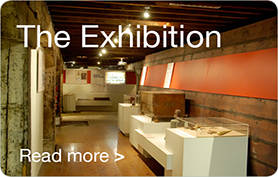24 November-At half past five, a.m., we got under way, and got out of the harbour with a light breeze from the N.E., with three, four, and five fathoms water the whole way, the tide just beginning to ebb. I am pleased with the position of the buoys laid down by Mr Field, and I hope before long to be enabled to place buoys and beacons so as to enable strange ships to come in without difficulty. At one p.m., anchored again in Holdfast Bay; I had told Mr Kingston I should come here for his report. At half past two, Messrs Kingston and Brown came on board, and I am, thank God, at last repaid for my former anxieties by finding the first impressions made on my mind of the plains and harbour so far realized. I cannot say how much I suffered (although I was determined not to allow individual feeling to hurt the future prospects of the colony) from the evident discontent experienced by all parties on my insisting on landing stores and all here; but I find now they have changed their minds, and think this is the place for the capital of a flourishing colony. I herewith enclose you Mr Kingston’s report:
Holdfast Bay,
24 November, 1836.
My Dear Sir – It affords me much sincere pleasure to be enabled to report to you that the branch of the harbour which we went up on Monday last, proves to be the embouchure of the fresh water river which I discovered the day after we had landed here, and which, as far as I have been able to see it, I am induced to believe, rises at the foot of Mount Lofty. I landed on Tuesday from the hatch-boat, about a mile further north than we did the day previous, and proceeded as close to the banks as the mangroves would allow. About a quarter of a mile from where I landed, we crossed a creek from the eastward about fifteen yards wide and three feet deep; in the course of the day we crossed several other small ones, in all of which the water was salt. After proceeding on nearly a due southerly course, I found the water in the middle of the river nearly fresh (we had used much worse at Nepean Bay), and about a mile further perfectly so. Mount Lofty bearing E.50 S. I kept along the banks of the river, still running from the south, about two miles-when I think it had its source in the marshes, in which I found the river before alluded to, losing itself; and as it was nearly dark, and the men having been wet all day, I was anxious to get back to the camp-I therefore crossed the marsh and made for the sand hills on the sea coast, distant about half a mile, Mount Lofty bearing E.50 S. I examined the river and reaches again yesterday, and on my way to it from the camp, having first crossed the river running down from Mount Lofty, my road for about six miles was across a plain of exceedingly fine land; I again traced the plain and then kept on its edge, being all along able to trace the course of the river through the reeds, until I found it again running through a regular bed. The river, although in parts shallow and much obstructed by fallen tea trees, would be navigable for flat-bottomed boats as far as the marshes, through which a regular communication with the upper part of it can easily be made. A very large body of water must come down the river in the winter, as in the upper part where the banks are thirty feet deep, there are evident marks of the floods reaching the top. I now feel assured that we have obtained sufficient information to convince the most sceptical of the great value and eligibility of these plains-possessing as they do, abundance of fresh water, an excellent harbour, with at least one river into it, which can easily be made eligible as a mode of communication between it and the plains.
Believe me, Sir,
Yours, most sincerely,
G. S. Kingston.



Comments or Questions: